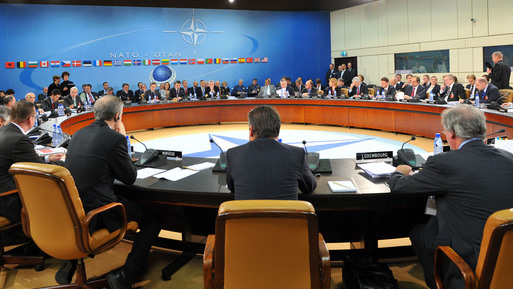
From William S. Cohen, Nicholas Burns, and George Robertson, the Hill: [R]ecently, our friend Richard Haass, president of the Council on Foreign Relations, spoke for many when he wrote in the Washington Post that “Europe no longer matters” and asked: “If NATO didn’t exist today, would anyone feel compelled to create it?”
To this we respectfully answer: Yes, we would. NATO is in desperate need of reform, to be sure. But NATO is needed. An America that cannot be either isolationist or unilateralist must have allies in a dangerous, complex and highly integrated 21st century. Of the last four wars the United States has fought — Kosovo, Afghanistan, Iraq and Libya — NATO has had a direct combat role in three. The alliance has proven its worth, and the U.S. would be a substantially weaker power without it. . . .
There is real value in having a collective defense organization like NATO that is on our side. But to be of value, NATO must be ready to act, and today its ability to do so is increasingly in doubt. For too long, NATO’s European members have relied too heavily on the U.S. to shoulder the lion’s share of the work.
As [former Secretary of Defense Robert] Gates correctly pointed out, NATO’s recent operations have exposed fundamental weaknesses of both will and capability that have called into question the future viability of the Atlantic Alliance. In Libya, for example, fewer than one-third of NATO allies have participated in strike missions, and fewer than half have contributed to the Libyan operation at all. That is unacceptable.
One reason NATO has struggled in Libya is that for the first time since the founding of NATO six decades ago, the organization’s natural and most powerful leader has not led. America cannot hand off the mission in Libya to its European allies and say “let NATO handle it,” because America is and always has been the heart and soul of NATO. Now that NATO is engaged in Libya, the credibility of the alliance is on the line. NATO must succeed, and we believe NATO could more effectively do so if the U.S. were leading the military effort there. (photo: NATO)
Cohen is a former U.S. secretary of Defense. Burns is a former U.S. ambassador to NATO and a former under secretary of State for Political Affairs. Robertson is a former U.K. Minister of Defense and a former secretary-general of NATO.
Image: nato%204%2019%2010aa.jpg
